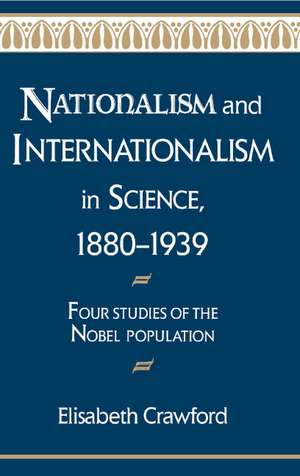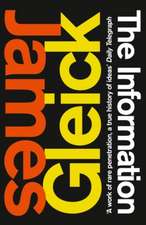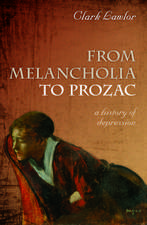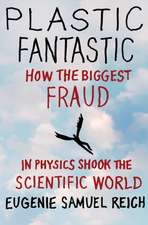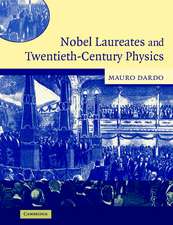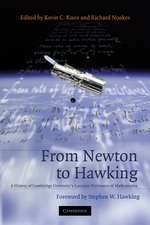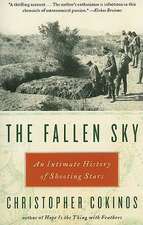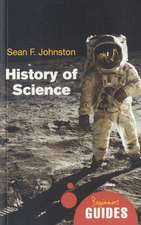Nationalism and Internationalism in Science, 1880–1939: Four Studies of the Nobel Population
Autor Elisabeth Crawforden Limba Engleză Hardback – 27 feb 1992
| Toate formatele și edițiile | Preț | Express |
|---|---|---|
| Paperback (1) | 298.97 lei 6-8 săpt. | |
| Cambridge University Press – 3 iul 2002 | 298.97 lei 6-8 săpt. | |
| Hardback (1) | 688.57 lei 6-8 săpt. | |
| Cambridge University Press – 27 feb 1992 | 688.57 lei 6-8 săpt. |
Preț: 688.57 lei
Preț vechi: 773.67 lei
-11% Nou
Puncte Express: 1033
Preț estimativ în valută:
131.77€ • 136.79$ • 109.88£
131.77€ • 136.79$ • 109.88£
Carte tipărită la comandă
Livrare economică 22 martie-05 aprilie
Preluare comenzi: 021 569.72.76
Specificații
ISBN-13: 9780521403863
ISBN-10: 0521403863
Pagini: 172
Ilustrații: 11 b/w illus. 11 tables
Dimensiuni: 152 x 229 x 14 mm
Greutate: 0.37 kg
Ediția:New.
Editura: Cambridge University Press
Colecția Cambridge University Press
Locul publicării:Cambridge, United Kingdom
ISBN-10: 0521403863
Pagini: 172
Ilustrații: 11 b/w illus. 11 tables
Dimensiuni: 152 x 229 x 14 mm
Greutate: 0.37 kg
Ediția:New.
Editura: Cambridge University Press
Colecția Cambridge University Press
Locul publicării:Cambridge, United Kingdom
Cuprins
List of figures; List of tables; Acknowledgements; Introduction; Part I. Conceptual and Historiographical Issues: 1. Methods for a social history of scientific development; 2. First the nation: national and international science, 1880–1914; Part II. Critical and Empirical Studies: 3. Internationalism in science as a casualty of World War I; 4. Centre-periphery relations in science: the case of Central Europe; 5. National purpose and international symbols: the Kaiser-Wilhelm Society and the Nobel institution; 6. Nobel laureates as an élite in American science; Bibliographical essay; Index.
Recenzii
"...takes a step toward breaking through to the large-scale categories of historical analysis that are commonplace in the mainstream historical community but have been lacking among historians of science." Kathryn M. Olesko, Science
"In none of her studies does Crawford shy from considering developments in scientific theory and experiment, the peculiarities of the Swedish scientific community and the goals of the Nobel prize committees. Such a historical understanding must supplement any quantitative analysis of sociological variables if we are to appreciate how the prizes reflect national and international scientific relations. It is for this reason that her book is such a success." Diana Barkan, Nature
"...departs from the commonly held notion that universalism and internationalism are inherent features of science. Showing how the rise of scientific organizations around the turn of the century centered on national scientific enterprises, Crawford argues that scientific activities of the late nineteenth century were an integral part of the emergence of the nation-state in Europe.
"...much more than a mere history of these prizes. She questions the assumption that science is and always has been universal. Scientific internationalism, science as an activity and a social institution, is often confused with scientific universalism, science as an abstract method for establishing universally valid knowledge....Crawford demonstrates that the similarities between American Nobel laureates and nonwinning candidates outweigh the differences, and she rejects the argument that Nobel Prizes constitute objective measures of social stratification in science." Mark Walker, ISIS
"In none of her studies does Crawford shy from considering developments in scientific theory and experiment, the peculiarities of the Swedish scientific community and the goals of the Nobel prize committees. Such a historical understanding must supplement any quantitative analysis of sociological variables if we are to appreciate how the prizes reflect national and international scientific relations. It is for this reason that her book is such a success." Diana Barkan, Nature
"...departs from the commonly held notion that universalism and internationalism are inherent features of science. Showing how the rise of scientific organizations around the turn of the century centered on national scientific enterprises, Crawford argues that scientific activities of the late nineteenth century were an integral part of the emergence of the nation-state in Europe.
"...much more than a mere history of these prizes. She questions the assumption that science is and always has been universal. Scientific internationalism, science as an activity and a social institution, is often confused with scientific universalism, science as an abstract method for establishing universally valid knowledge....Crawford demonstrates that the similarities between American Nobel laureates and nonwinning candidates outweigh the differences, and she rejects the argument that Nobel Prizes constitute objective measures of social stratification in science." Mark Walker, ISIS
Descriere
This book examines the upsurge of nationalism among scientists of warring nations during and after World War I.
